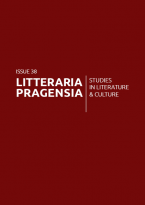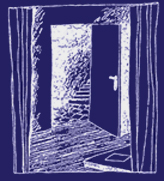
|
19.38 Scotland in EuropeEdited by: Murray Pittock Volume: 19 Issue: 38 December 2009 |
Contents
|
Murray Pittock
Introduction
|
1 |
|
Neal Ascherson
"When Was Britain?" Scotland at the Tipping Point
show abstract
The construction of Scottish national identity has been in some ways exceptional. Although sometimes parallel to Czech experience, Scottish national awareness diverges from Central European models in its lack of emphasis on biological‐ethnic and language factors.
Associated with England after the unions of 1603 and 1707 in a relationship of ‘Britishness,' Scotland interpreted the word in its own way. Scottish political culture has tended to be contractual, recognizing the notion of supreme law, in contrast to the English/British state doctrine of parliamentary absolutism. Another problem in the relationship has been English indifference to the 19th‐century distinction between ‘nation' and ‘state.' The notion of Britishness began as an antiquarian fancy, legitimizing Tudor rule over Wales and Ireland and, importantly, over the first transatlantic colonies. After the Unions, Britishness became an umbrella identity uniting the component nations against perceived external challenge: the threat of Catholic invasion, the later context of overseas empire, the wars of the 19th and 20th centuries. As the empire dissolved and the threat of war receded in the later 20th century, Britishness grew less convincing, and both Wales and Scotland reasserted their national identities. None the less, a ‘British ethnicity' did emerge in the form of the ‘English gentleman' elite, which developed a universal common culture. Robert Burns, Scotland's national bard, was also ‘British' in culture, but in ways which subsequently became inaccessible. As subjective and political Britishness fades both north and south of the Border, the possibility of Scottish independence grows stronger. However, the Scots may prove reluctant to take the final step, and independence - if it comes - could arrive from unexpected directions. |
3 |
|
Tom Nairn
The Enlish Postman
show abstract
This article takes as its starting point the ‘uniform' of Britishness: once international and external, now inward‐looking and limited. The ‘habitus' of an extended Britishness is identified as an early modern phenomenon, increasingly at odds with the contemporary nationalisms of the British archipelago. The support offered a declining Britishness by identification with the United States is threatened by the prospective decline of the United States itself. The essay ends with an examination of the current position of nationalisms within Great Britain and the prospects for English nationality in this context.
|
19 |
|
Murray Pittock
What Is a National Culture?
show abstract
The culture of the modern world is freely and widely acknowledged to be international, even global in its reach, at every level from the economics of government to the practice of the academy. However, the irreducibility of cultural differences at the national level, core to the research goals and subject‐matter of the humanities, remains key to analyses of imagination, environment, identity, the management of conflict and mutual understanding. Current theories of nationalism recognize these facts and address them; but their explanations can sometimes be tactical rather than strategic, being based on presentist assumptions, and in portraying nationality as invented, seek to stand outside a condition which all share: this position can be a cloak for the very chauvinism it pretends to abhor. The current essay suggests that matters are much more complicated and ambiguous than this, and advances a sustainable theory of national culture as key to understanding questions which operate at political and deeper levels.
|
30 |
|
Alexander Broadie
Early Scottish Thinkers on the Idea of Political Freedom
show abstract
Scottish thinkers from the High Middle Ages to the Post‐Reformation period wrote, sometimes in a highly innovative way, on the idea of political freedom, attending especially to the question of the people's right to choose and to depose their sovereign. This article focuses on three thinkers who attended to this aspect of political thought: the Franciscan John Duns Scotus (c.1266‐1308), the secular priest John Mair (c.1467‐1550), and the Church of Scotland leader George Buchanan (1506‐82). It will be noted that despite the substantially different political contexts within which the three thinkers wrote on these questions they were in agreement on the right of the people to choose and to depose their sovereign. Since two of the great Scottish documents of the high Middle Ages, the Declaration of the Clergy (1310) and the Declaration of Arbroath (1320), also embody the concept of political freedom and since there is reason to believe that the authors of them were influenced by Duns Scotus's doctrine discussed in this paper, space is given to consideration of the two declarations also.
|
48 |
|
Atsuko Ichijo
The Place of Scotland's European Past
show abstract
The "Scotland and Europe" theme and an appeal to Scotland's past affinity with continental Europe emerged as a subtle but significant aspect of Scottish nationalism in the 1990s. Largely thanks to the Scottish National Party's adoption of the "Independence in Europe" policy in 1988, "Europe" entered in the Scottish public discourse and became a fixture. While instrumental approaches to "Europe" prevailed amongst political actors, other actors embraced "Europe" in a much less instrumental manner, thus cementing the place of Scotland's European past in Scottish public discourse. "Europe" became one dimension with which the Scots could differentiate themselves from the English in their pursuit of asserting the distinctiveness of Scottish identity.
|
60 |
|
Philip Schlesinger
The Politics of Cultural Policy
show abstract
This article addresses the roles of intellectuals in the shaping of cultural policy. Three distinct but interrelated political levels are discussed: the EU, the UK as a member state and Scotland as a stateless nation. The cultural and political space of the European Union is contradictory: it has a cultural presence but member states have full cultural competence. The EU's public sphere is fragmented, poised between regulation and federation. The member state therefore remains the principal focus for analysis of cultural policy debates. Next, a variety of theoretical positions on the intellectuals and the strategic uses of expertise in a "knowledge society" are explored, illustrating how the cultural policy field is typically constituted. The article goes on to discuss how intellectuals in the UK have shaped government policy on the "creative economy," underlining the importance of a New Labour "policy generation" in taking ideas forward that have been globally influential as well as in Scotland. A discussion of stateless nationhood is the backdrop to showing how the Nationalists in power inherited their Labour‐LibDem predecessors' approach to developing a new cultural institution, Creative Scotland. This underlines Scotland's deep policy dependency on creative economy ideas fashioned in London.
|
75 |
|
Review of
Patrick Lonergan
Theatre and Globalization: Irish Drama in the Celtic Tiger Era
Houndmills:
Palgrave Macmillan, 2009. 248 pp.
→ Ondřej Pilný, Theatre Studies in the Global Era: A Performative Act |
90 |
|
Review of
Christina Wald
Hysteria, Trauma and Melancholia: Performative Maladies in Contemporary Anglophone Drama
Houndmills:
Palgrave Macmillan, 2007. 304 pp.
→ Clare Wallace, Forms of Performativity in Contemporary Anglophone Drama |
93 |
|
Review of
John McGahern
Love of the World. Essays
Ed. Stanley van der Ziel. London:
Faber and Faber, 2009, 448 pp.
→ Michaela Marková, McGahern's Essayistic Fugitives |
97 |
|
Review of
Janet Beer
The Cambridge Companion to Kate Chopin
Cambridge and New York: Cambridge University Press, 2008. 184 pp.
→ Dagmar Pegues, Kaleidoscopic Vision of Kate Chopin's Fiction and Life: A Twenty-first Century Response to the Genre of Local Color |
100 |


